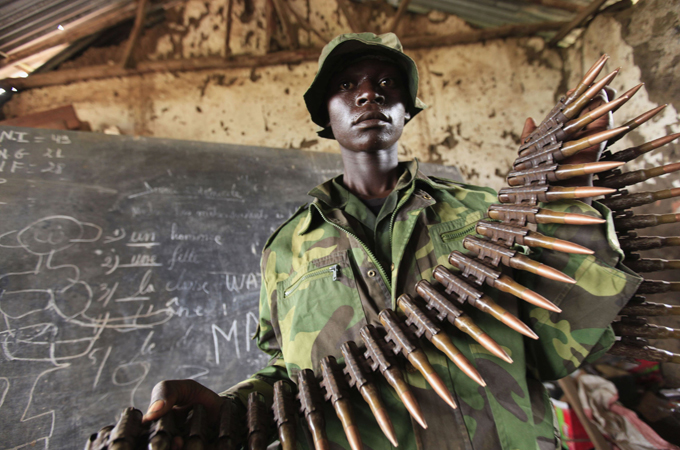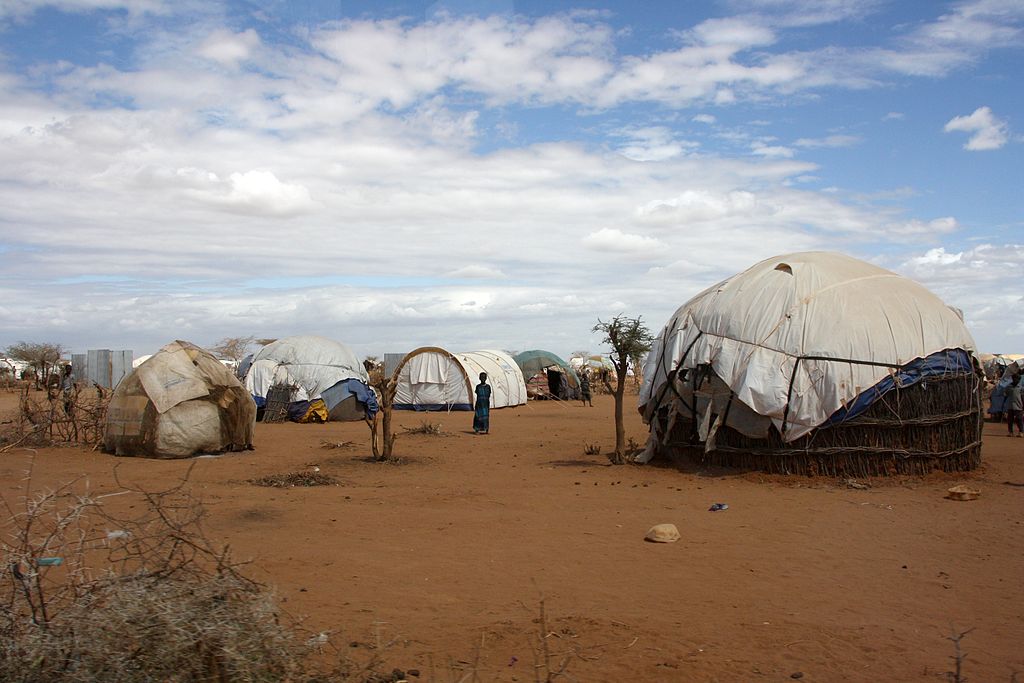[captionpix align=”left” theme=”elegant” width=”320″ imgsrc=” http://news.bbcimg.co.uk/media/images/59945000/jpg/_59945199_014452266-1.jpg
” captiontext=” General Bosco Ntaganda is leading the M23 rebellion in eastern DR Congo.”]
After recent allegations that Rwanda has been backing rebels in eastern DRC, the Netherlands (€5million), the United Kingdom (€16million) and now Germany (€21million) have suspended some, or all of, their aid budgets to Rwanda. As aid money is typically released in cycles over a period of several years this suspension will have serious consequences for development in Rwanda and the region at large.
In 2010-2011, the Canadian International Development Agency (CIDA) provided CAD 25million in project-based aid to Rwanda, a sum which might also be rolled back in light of the allegations. The US State Department has also decided to cancel this year’s modest military aid budget of USD $200,000 and reallocate it to other countries. Rwanda had until recently been a darling of the international aid community and a poster child for post-conflict recuperation with some of the highest economic growth rates on the continent.
Similarly, Washington had been Rwanda’s most important ally but the aid freeze signals a significant shift in the region as perceptions of Kigali change from one of stable partner to that of destabilizing aggressor. In another sign of things to come the US Office of Global Criminal Justice has gone as far as warning Rwandan president, Paul Kagame that he may face an ICC war crimes indictment if the alleged backing of rebels persists.
The Rwandan government has denied all allegations despite reports from the UN that it is indeed responsible for arming rebel groups, which includes M23, a group currently in open conflict with the Congolese government in the border provinces of North and South Kivu. An internal UN report that leaked to the media cited Rwandan trained soldiers who allegedly crossed the border into Congo to fight with the rebels.
[captionpix align=”left” theme=”elegant” width=”320″ imgsrc=” http://timeglobalspin.files.wordpress.com/2012/07/2012-07-23t175604z_93978440.jpg?w=576
” captiontext=” A UN peacekeeping patrol drives through the eastern Congolese city of Goma, July 23, 2012.”]
Open Rebellion
M23, named for the March 23, 2009 peace accord signed between the DRC government and the CNDP or Congrès national pour la défense du people is a rebel movement composed mainly of ethnic Congolese Tutsis. Many of the former CNDP members have been rolled into the M23 movement. Under the leadership of General Bosco Ntaganda, the several hundred soldiers mutinied in April of this year from the regular Congolese army after the failure of the peace deal and the threat of Ntaganda’s arrest due to an indictment issued by the ICC in 2006 for recruitment of child soldiers and condoning mass rape. Known as ‘the Terminator’ for his ruthlessness, Ntaganda is linked to numerous civilian massacres in the region. Continuing defections to the rebels from the Congolese army are ongoing as reports suggest soldiers are without food and basic accommodation with salaries for senior officers as low as USD $100 per month which often go unpaid.
Dating back to the 1994 Rwandan genocide, the historic Hutu-Tutsi ethnic tensions make it essential that the UN and international governments resolve to stabilize the region and prevent further conflict and destruction. Given the economic effects on cross border trade and the human consequences of masses of refugees fleeing the fighting Rwanda and DR Congo can ill afford further and prolonged conflict. On July 26, UN military helicopters from MONUSCO (the UN peacekeeping mission in DR Congo) and the Congolese military engaged in a counter-offensive against rebel forces near a mountainous village in the region. The UN maintains 17,000 peacekeepersin the DRC but given the enormous size of the country it is extremely difficult to simultaneously protect civilians and halt the fighting.
The ‘African World War’
1998 marked the beginning of the Second Congo War which ended officially in 2003 after a negotiated peace deal however violence continued well into the following years. According to International Rescue Group by 2008 roughly 5.4 million people had died as a direct result of the conflict, making the war the deadliest in African history. A majority of the victims died as a result of malnutrition and starvation in the aftermath of the violence and millions of others became refugees or internally displaced persons (IDPs). The war saw the participation of eight African states variously aligned with government or rebel forces- Angola, Namibia, Uganda, Zimbabwe, Chad, Sudan, Burundi, and Rwanda, and was fuelled to a large extent by Congo’s immense mineral wealth.
Humanitarian Concerns
The past three months have witnessed an estimated 260,000 people fleeing the violence in eastern DR Congo and aid organisations say the conflict is preventing humanitarian relief efforts from moving forward. Concerns have also been raised by the International Medical Corps (IMC) about the possibility of a serious cholera outbreak with 15, 000 new incidents of the disease reported in recent months. The World Health Organisation has warned that the security situation is hampering access to health care facilities and a local outbreak could result in a regional epidemic as refugees flee across borders into neighbouring states like Rwanda, Uganda and Burundi. The latest report from the UN Office for the Coordination of Humanitarian Affairs (OCHA) also cited numerous incidents of sexual violence, smuggling and the recruitment and use of child soldiers throughout the DR Congo’s eastern provinces.
CIDA is funding various projects in the DRC with a focus on multilateral initiatives in good governance, poverty reduction, combatting the illegal exploitation of natural resources and conflict mediation. Although Canadian industries maintain significant investment in the mining sector, bilateral relations are limited with total trade only amounting to CAD $20million. Trade with Rwanda is even smaller and represents only CAD 3million per annum.
[captionpix align=”left” theme=”elegant” width=”320″ imgsrc=” http://timeglobalspin.files.wordpress.com/2012/07/2012-07-24t181318z_16395752.jpg?w=576
” captiontext=” Families flee renewed fighting between Congolese army and M23 rebels near the eastern Congolese city of Goma July 24, 2012.”]
Uneasy Rapprochement
In an attempt to quell the violence, the African Union Summit held in Addis Ababa from July 15-19 saw President Kagame of Rwanda and President Joseph Kabila of DR Congo and other Great Lakes leaders sign a deal to create a non-partisan, international military force to eliminate the armed rebels in the region. Yet given the logistics involved and the past and ongoing history of conflict in the area will these steps be effective? Is President Kagame sincere in these efforts at diplomacy when it is his very government that is suspected of funding the rebels?
A relevant regional example might be that of the intervention of AU forces from Uganda and Kenya in Somalia. While they have met with initial military success, terrorism in Kenya has increased markedly as a result and the fighting has moved underground. Will a similar intervention in the DRC yield the desired results or simply change the visibility of the conflict into something even more insidious?



